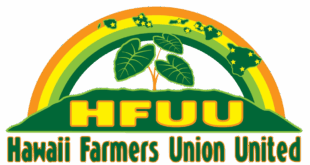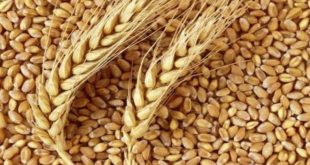Press release…
FAO Director-General conveys message at General Plenary Leaders Dialogue at Climate Summit in Brazil…
07/11/2025
Belém, Brazil – Transforming global agrifood systems to be more efficient, inclusive, resilient, and sustainable is critical to meeting the Paris Agreement targets on climate change. Yet, the persistent shortfall in climate finance represents “a lost opportunity” for a sector that could cut global emissions by up to one-third.
This was the message delivered by the Food and Agriculture Organization of the United Nations (FAO) on Friday at the Belém Climate summit.
Convened by Brazilian President Luiz Inácio Lula da Silva, the Summit brought together world leaders, ministers and representatives of international organizations to discuss solutions for tackling the climate crisis through fair and sustainable energy transitions, as well as forest and biodiversity conservation. The meeting was held ahead of the 2025 United Nations Climate Change Conference (COP30), scheduled for 10–21 November in Belém, Brazil.
At COP30, FAO will emphasize that science-based agrifood solutions can play a pivotal role in reducing emissions, enhancing carbon sequestration, restoring ecosystems, and strengthening resilience – all while ensuring food security and nutrition for the 1.2 billion people whose livelihoods depend on these systems.
“From restoration of degraded agricultural lands to resilient crops and sustainable aquaculture and livestock, we have the solutions that deliver across sectors,” said FAO Director-General QU Dongyu in a speech delivered on his behalf to the Summit’s General Plenary Leaders Dialogue meeting in Belém.
In Brazil’s Amazon region, for example, agroforestry projects are restoring degraded lands while supporting local communities – a triple win for biodiversity and food diversity, for food security, and for the climate.
But potential alone is not enough. Investment remains far below what is needed to deliver agrifood systems transformation at scale. Despite increased funding from the Green Climate Fund and the Global Environment Facility, forestry, livestock, fisheries, and crop production together received only 4 percent of total climate-related development finance in 2023.
“For a sector that can deliver a third of global emission reductions, this gap is not only unequal – it is a lost opportunity. By overlooking agrifood systems, we are leaving one of the most effective pathways to low-emission growth untapped,” Qu said.
Call to Action on Integrated Fire Management and Wildfire Resilience
On Thursday, the FAO Director-General addressed a COP30 thematic session on forests and oceans that marked the launch of the Call to Action on Integrated Fire Management and Wildfire Resilience, an initiative aimed at shifting from reactive fire suppression to proactive, preventive strategies through integrated fire management.
Spearheaded by Brazil and endorsed by 50 countries, along with FAO, the International Tropical Timber Organization (ITTO) and the UN Environment Programme (UNEP), the Call to Action urges governments to move beyond reactive fire suppression toward integrated fire management, emphasizing prevention and preparedness through a combination of scientific and traditional knowledge and modern technologies.
The framework includes 22 strategic actions to scale up wildfire prevention, empower local communities, and strengthen cross-border cooperation. It recognizes the FAO-hosted Global Fire Management Hub as a key delivery mechanism for the Call to Action in close coordination with countries and regional fire-management networks…
 THE GLOBAL WINDOW OF TURKISH FOOD AND AGRICULTURE The Global Window of Turkish Food and Agriculture Sector
THE GLOBAL WINDOW OF TURKISH FOOD AND AGRICULTURE The Global Window of Turkish Food and Agriculture Sector








